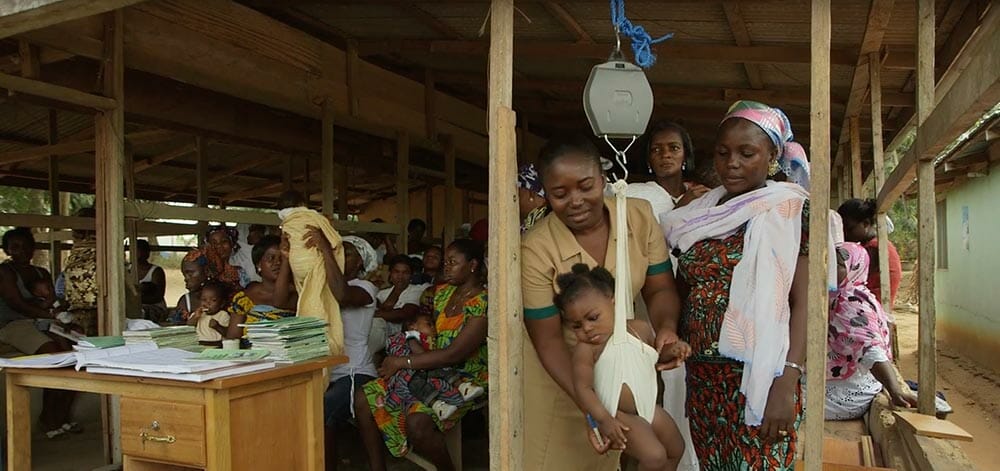Client
The Grameen Foundation, The Bill & Melinda Gates Foundation
Services
Rapid pilot test, study design, panel survey, ethnographic research, semi-structured interview, whitepaper production, infographic design
“Our goal was to spend a week executing on study protocol by resolving real-world issues of site selection, data collection, and implementation of the intervention. We made site visits to the directors of both districts selected for inclusion in the study, which are located outside of Accra. The University of Ghana’s School of Public Health served as a wonderful host and provided space to work throughout the trip.”
—Paloma Luisi, Research Associate
Overview
Mobile technology has the incredible potential to deliver healthcare solutions globally, especially in locations where computer or WiFi accessibility might be limited. Inspired by the innovative potential of mobile technology solutions, HITLAB evaluated the MOTECH program, which uses mobile phones to increase the quantity and quality of antenatal, postnatal, and neonatal care in Ghana.
Challenge
Validating a New Technology
Ghana has long suffered from high rates of both maternal and infant mortality. Expecting and new mothers face challenges such as poor prenatal care options, lack of skilled practitioners for their birth, and reduced access to vaccinations and preventative treatments during their child’s infancy. MOTECH applications attempt to alleviate the burdens these challenges present by providing information and services to pregnant women as well as the community health workers who serve them.
Developed jointly by the Grameen Foundation and Bill & Melinda Gates Foundation, MOTECH Mobile Midwife aimed to improve maternal and child health outcomes in Ghana by using interactive voice response (IVR) to deliver health education and care visit reminders. Seeing promise in this approach, the Ghanaian Health Service began planning a national scale-up of this service. However, they first required objective and rigorous evidence of its validity and impact in order to tailor an approach to national deployment.
Solution
Rigorous assessment with multiple stakeholders.
With support from the Grameen Foundation, HITLAB designed and deployed a study to evaluate a MOTECH intervention on maternal and infant mortality. This included utilization of antenatal care, skilled delivery, neonatal vaccines, and a host of other indicators related to health behaviors.
Team members worked closely with community health workers to collect data from more than 2,000 pregnant and post-partum women in rural areas.
Our research team collected qualitative data over 18 months to determine the effects of the MOTECH system on health outcomes, health seeking behavior, knowledge, attitudes, and improved practices among users. HITLAB worked with the University of Ghana as a field partner, drawing on more than 25 faculty members and students to lead study implementation. The Ghanaian Health Service joined to provide access to health clinics from rural regions around the country.

While MOTECH increased women’s knowledge of when and why to attend care, no overall improvement in rate of care utilization was observed. Women cited barriers such as the cost, time, and permission to travel to health facilities limited them from attending care visits. MOTECH did achieve improvements in aspects of care women could directly control, such as breast-feeding practices. Women also reported improved relationships with their nurses, better understanding of their health and care needs, and decreased fear of facility-based care – all important gains that can underpin future improvements in maternal health outcomes. Implementers chose to revise the MOTECH product in light of these learnings.
The evidence base formed by HITLAB’s evaluation of MOTECH will provide actionable insight on the program’s impact on women and children in Ghana — guiding the growth of MOTECH and other mHealth initiatives in Ghana, Africa and the rest of the world.
Increased understanding of health and care needs
Improved breast-feeding practices
Improved relationships with nurses
Decreased fear of facility-based care